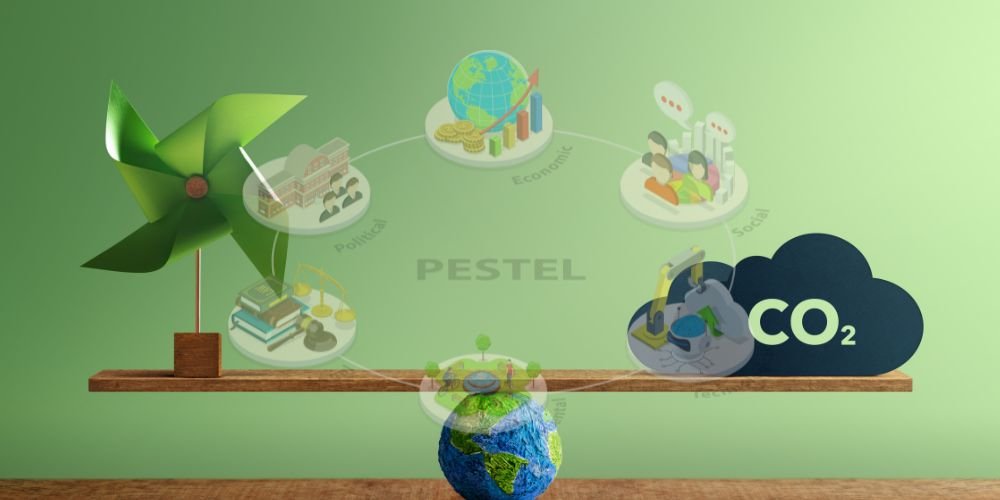Environmental policy plays a pivotal role in shaping how societies interact with the environment, providing a framework for sustainable practices, conservation efforts, and mitigating environmental challenges. This article delves into the comprehensive world of environmental policy, exploring its fundamental principles, diverse methodologies, key advantages, notable applications, and the challenges it addresses within the ever-evolving landscape of global environmental governance and conservation.
Unveiling Environmental Policy
Environmental policy refers to principles, regulations, and actions designed to manage and protect the natural environment. It encompasses various issues, including air and water quality, biodiversity conservation, climate change mitigation, and sustainable resource management. Environmental policies are crafted at various levels of governance, from local and national governments to international bodies, reflecting a shared responsibility to address global environmental challenges.
Key Components of Environmental Policy
Understanding the key components of environmental policy is essential for grasping its complexity and impact:
- Legislation and Regulation: Legislation forms the backbone of environmental policy, outlining the rules and standards that individuals, businesses, and governments must adhere to. Regulations provide detailed guidelines for implementing and enforcing environmental laws and regulations.
- International Cooperation: Many environmental issues are transboundary, necessitating international cooperation to address them effectively. Treaties, agreements, and collaborative initiatives between nations contribute to a collective effort to address global challenges such as climate change and biodiversity loss.
- Monitoring and Enforcement: Effective environmental policy includes mechanisms for monitoring compliance and enforcing regulations. Government agencies, environmental NGOs, and international bodies play vital roles in implementing policies and addressing violations.
- Incentive Programs: Incentive programs, such as tax credits for environmentally friendly practices or subsidies for renewable energy, encourage individuals and businesses to adopt sustainable behaviors. These programs align economic incentives with environmental objectives.
Methodologies of Environmental Policy
Environmental policy employs various methodologies to address diverse environmental challenges and promote sustainability:
- Economic Instruments: Economic instruments, such as carbon pricing and pollution taxes, aim to internalize environmental costs into economic decision-making. These instruments incentivize greener practices and resource conservation by attaching a cost to environmental harm.
- Adaptive Management: Adaptive management is an approach that recognizes uncertainty in environmental outcomes. Policies embracing adaptive management allow for flexibility, iterative learning, and adjustments based on evolving scientific understanding and changing environmental conditions.
- Precautionary Principle: The precautionary principle guides policy decisions in the face of uncertainty. When an action poses potential environmental harm, even in the absence of conclusive scientific evidence, the precautionary principle advocates for preventive measures to mitigate potential environmental damage.
Advantages of Environmental Policy
The adoption of environmental policy brings forth a myriad of advantages, reshaping how societies balance economic development with ecological preservation:
Sustainable Resource Management and Conservation
One of the primary advantages of environmental policy is its role in sustainable resource management and conservation. By establishing guidelines for responsible resource use, policies contribute to the preservation of biodiversity, ecosystems, and critical natural resources.
Mitigation of Climate Change Impacts
Environmental policies play a crucial role in mitigating the impacts of climate change. Through emissions reduction targets, renewable energy incentives, and sustainable land-use planning, policies contribute to global efforts to combat climate change and transition to a low-carbon economy.
Public Health Improvement
Environmental policies have a positive impact on public health by regulating pollutants, ensuring access to clean water sources, and reducing exposure to harmful substances. Clean air and water regulations, waste management policies, and restrictions on hazardous materials contribute to overall public well-being.
International Collaboration for Global Challenges
Environmental policies facilitate international collaboration to address shared global challenges. Treaties such as the Paris Agreement on climate change and conventions on biodiversity conservation exemplify how nations come together to tackle environmental issues that transcend borders.
Applications of Environmental Policy
Environmental policy finds applications across diverse sectors, influencing how governments, businesses, and individuals interact with the environment:
Sustainable Urban Planning for Greener Cities
In urban areas, environmental policy guides sustainable urban planning. Policies related to green infrastructure, public transportation, and waste management contribute to creating eco-friendly cities that strike a balance between development and environmental preservation.
Conservation Policies Protecting Biodiversity
Conservation policies play a crucial role in protecting biodiversity. National parks, wildlife reserves, and habitat restoration initiatives are examples of how environmental policies contribute to the preservation of ecosystems and endangered species.
Renewable Energy Incentives for a Green Transition
Environmental policies drive the adoption of renewable energy sources. Incentives such as tax credits, feed-in tariffs, and renewable energy targets encourage the development and utilization of clean and sustainable energy alternatives.
Waste Reduction and Recycling Programs
Policies addressing waste reduction and recycling play a crucial role in sustainable resource management. Governments implement regulations that promote recycling practices, reduce the use of single-use plastics, and encourage the responsible disposal of waste to minimize environmental impact.
Challenges in Environmental Policy
While the advantages are evident, the practice of environmental policy faces its own set of challenges. Addressing these challenges is critical for achieving the goals of sustainability and conservation:
Lack of Global Consensus and Cooperation
One of the challenges in environmental policy is the lack of global consensus and cooperation. Differing priorities, economic interests, and political ideologies among nations can hinder collaborative efforts to address shared environmental challenges.
Enforcement Gaps and Regulatory Compliance Issues
Enforcement gaps and regulatory compliance issues pose significant challenges to the effective implementation of environmental policy. Insufficient resources for monitoring and enforcing regulations can lead to non-compliance, undermining the effectiveness of environmental policies.
Economic Pressures and Short-Term Focus
Economic pressures and short-term focus present challenges for policymakers. The emphasis on immediate economic gains may conflict with long-term environmental goals, leading to decisions that prioritize short-term economic benefits over sustainability.
Future Trends in Environmental Policy
As technology continues to evolve, future trends in environmental policy point toward advancements that further enhance its capabilities:
Digital Technologies for Environmental Monitoring
Integrating digital technologies, such as remote sensing and data analytics, is a future trend in environmental policy. These technologies enable more precise and real-time monitoring of environmental conditions, facilitating data-driven decision-making.
Nature-Based Solutions for Climate Resilience
Nature-based solutions, including afforestation, wetland restoration, and green infrastructure, are gaining prominence. Future environmental policies may increasingly incorporate these solutions to enhance climate resilience and address multiple environmental challenges simultaneously.
Circular Economy Principles for Sustainable Production
Adopting circular economy principles is a future trend to promote sustainable production and consumption. Environmental policies may focus on minimizing waste through recycling, reusing materials, and encouraging a shift toward a circular economic model.
Inclusive and Equitable Environmental Policies
Future environmental policies are likely to emphasize inclusivity and equity. Recognizing the interconnectedness of environmental issues with social justice, policies may strive to address environmental challenges while promoting fair and equitable outcomes for all communities.
Conclusion
Environmental policy is vital for navigating the intricate relationship between human activities and the natural world. Its ability to shape behaviors, drive conservation efforts, and address global environmental challenges makes it an essential element in the quest for sustainable development. While challenges persist, ongoing advancements and future trends indicate a dynamic and promising future for environmental policy, with applications extending into new frontiers of global ecological harmony and conservation leadership.





